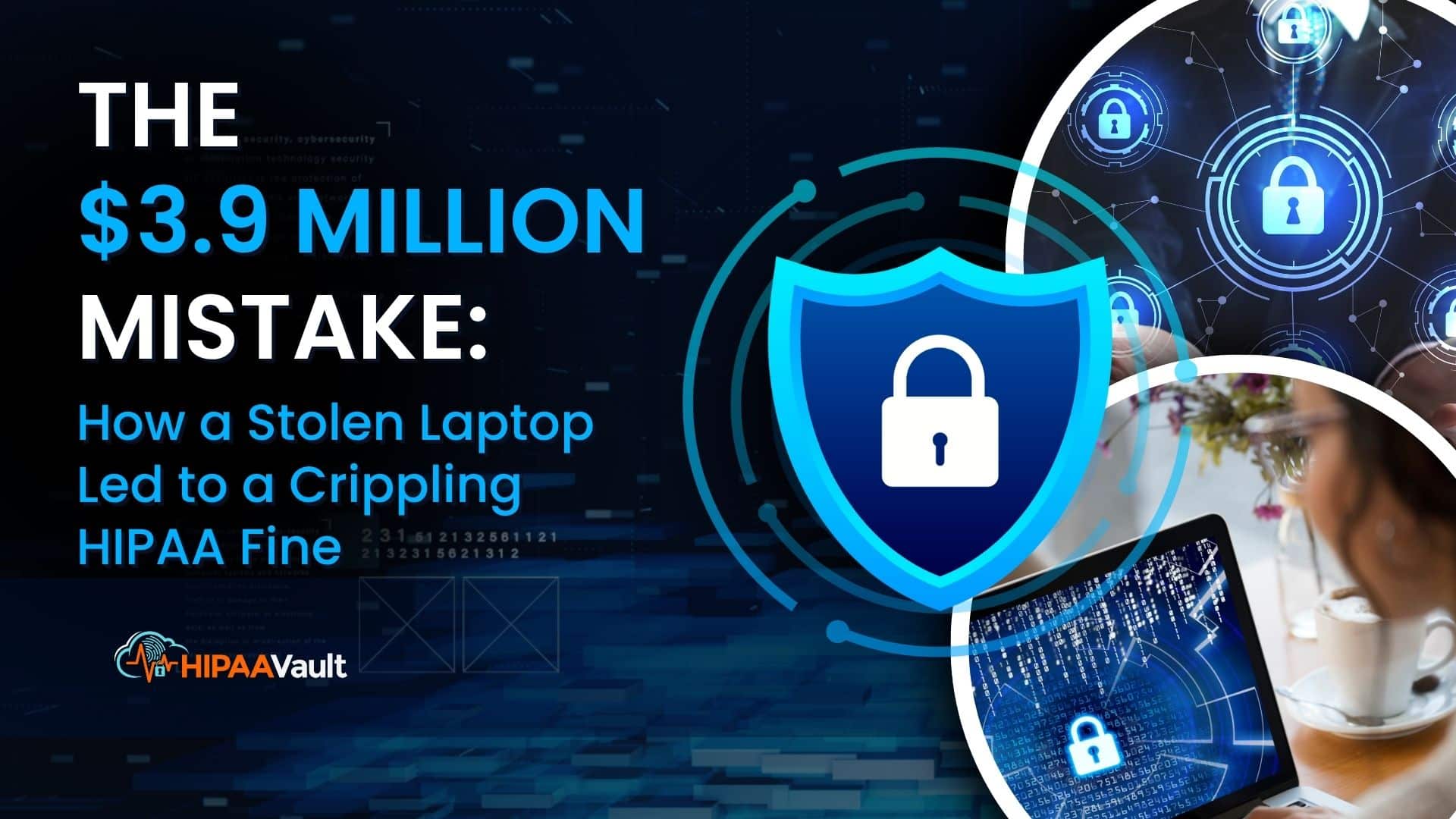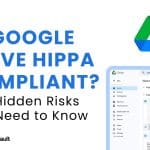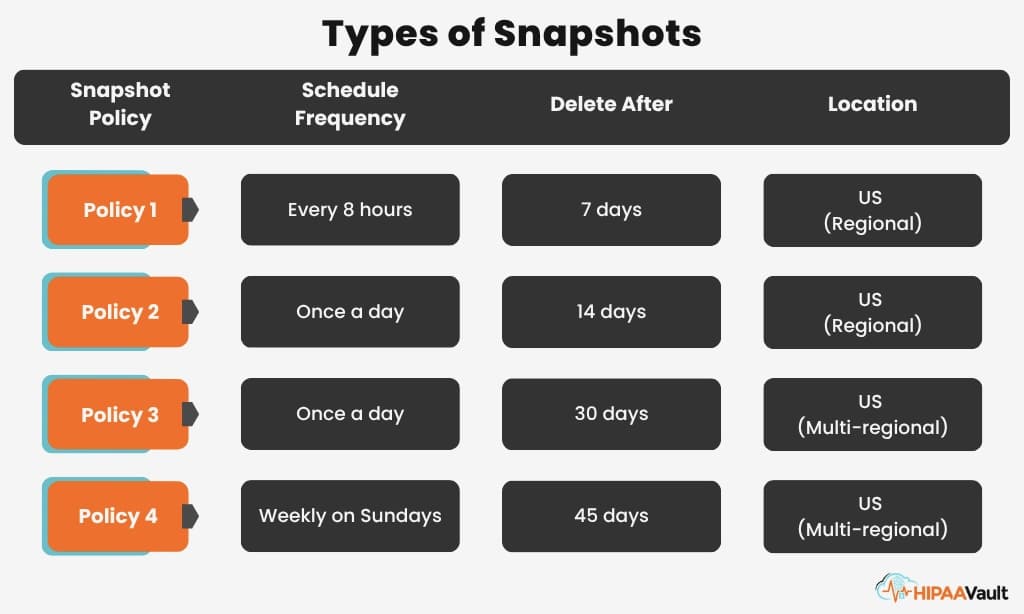In healthcare, even one small oversight can cost millions. In this HIPAA breach informational episode of The HIPAA Insider Show, hosts Adam Zeineddine and Gil Vidals, CTO and founder of HIPAA Vault, unpack how a single unencrypted laptop led to a $3.9 million fine—and what every healthcare organization can learn from it.
Want the full story straight from the source?
This real-world case exposes a hard truth: most HIPAA breaches aren’t caused by hackers but by everyday oversights—unencrypted devices, outdated policies, and a false sense of security.
🎯 Protect your organization’s data before a breach happens — Book a Free Compliance Consultation with HIPAA Vault’s HIPAA specialists.
What Causes a HIPAA Breach?
According to the U.S. Department of Health and Human Services (HHS.gov), a HIPAA breach occurs when protected health information (PHI) is accessed or disclosed in a way that compromises its privacy or security.
The Feinstein Institute Case: A Costly Oversight
In 2016, the Feinstein Institute for Medical Research—part of the Northwell Health system—agreed to pay $3.9 million to settle a HIPAA violation after a stolen laptop exposed 13 000 patient records.
💬 “This wasn’t a big cyberattack. It was just a simple mistake—a laptop stolen from an employee’s car,” explained Gil Vidals.
“And the worst part? The laptop wasn’t encrypted. Anyone could plug in that drive and see everything, even without technical skill.”
The lesson? Most HIPAA breaches aren’t sophisticated hacks—they’re preventable lapses.
💬 “It’s not enough to have policies written on paper,” said Adam Zeineddine. “If those policies aren’t enforced, they’re just words. HIPAA compliance lives or dies in execution.”
📘 Evaluate your own safeguards — Download the HIPAA Compliance Checklist to uncover hidden vulnerabilities.
Don’t Trust Patient Data to Standard Web Hosting
Protect your practice from breaches and fines. Our hosting includes intrusion detection, firewalls, and audit logs.
Learn MoreWhat Happens If PHI Is Lost or Stolen?
Once PHI is compromised, the HIPAA Breach Notification Rule requires covered entities to notify:
- Affected individuals
- The U.S. Department of Health and Human Services (HHS)
- Local media (if the breach affects > 500 people)
The Real Cost of a HIPAA Violation
The Feinstein Institute case underscores how penalties are calculated. The $3.9 million settlement covered roughly $300 per affected patient, funding two years of identity-protection services.
💬 “That’s roughly $300 per patient,” said Vidals, “which matches what we typically see in OCR settlements. Multiply that by thousands of records and you have a multimillion-dollar mistake.”
Reporting Requirements Under HHS
Breaches must be reported to HHS within 60 days of discovery. Late or incomplete reporting can significantly increase penalties (HHS guidelines).
🛡️ Need help understanding your reporting obligations? Contact Hippa Vault’s Compliance Team for guidance.
What Are the Typical Penalties for a HIPAA Violation?
Penalties are determined by the level of negligence, as defined in the HHS Enforcement and Penalty Structure.
| Tier | Description | Maximum Annual Fine |
| 1 | Lack of knowledge | $25 000 |
| 2 | Reasonable cause | $100 000 |
| 3 | Willful neglect (corrected) | $250 000 |
| 4 | Willful neglect (uncorrected) | $1.5 M + |
💬 “OCR fines are often proportional to the damage,” noted Zeineddine. “The key is prevention—encrypt data, restrict access, and audit regularly.”
💬 Avoid costly penalties — Speak with a Compliance Specialist to protect your data and reputation.
Can Cloud Hosting Prevent HIPAA Violations?
Centralizing Data Security in the Cloud
Gil Vidals emphasized that prevention starts with how you store and access PHI.
💬 “If Feinstein had used a HIPAA-compliant cloud environment, that data never would’ve lived on a local laptop,” said Vidals. “Our customers process PHI securely in the cloud—it never leaves. So even if a laptop is stolen, there’s nothing for the thief to access.”
Cloud environments enable real-time monitoring, encryption, and secure backups—all required under the HIPAA Security Rule.
How HIPAA-Compliant Hosting Reduces Risk
A trusted hosting partner like HIPAA Vault provides:
- End-to-end encryption (in transit and at rest)
- Granular access controls and audit trails
- Continuous monitoring and logging
- Signed Business Associate Agreements (BAAs)
🔐 Learn how cloud security simplifies compliance — Explore HIPAA Cloud Hosting
Customize Your HIPAA Bundle—Pick 3 and Save 15%
Don't pay for tools you don't use. Combine Hosting, Email, Fax, or Text into one affordable, managed plan.
Learn MoreWhat Compliance Solutions and Software Can Help?
Encryption, Risk Assessments, and BAAs
Organizations must address three critical areas:
- Encrypt All Devices: Full-disk encryption ensures stolen hardware doesn’t trigger a reportable breach.
- Conduct Regular Risk Assessments: Required by HIPAA’s Security Rule.
- Execute BAAs with All Vendors: Even if a vendor doesn’t “open” PHI, access alone requires a signed Business Associate Agreement.
💬 “Even if a vendor says, ‘We don’t look at your data,’ it doesn’t matter,” explained Vidals. “If they have access, you need a BAA.”
How HIPAA Vault Simplifies HIPAA Compliance
HIPAA Vault automates these safeguards with HIPAA-compliant cloud infrastructure designed for healthcare providers and startups.
🧠 Simplify your compliance journey — Explore HIPAA Vault Solutions
Actionable Steps to Prevent a HIPAA Breach
- Eliminate local PHI storage. Keep data centralized in the cloud.
- Encrypt all endpoints. Full-disk encryption is essential.
- Apply least privilege access. Restrict PHI access to only what’s necessary.
- Enable continuous monitoring. Audit for unusual activity.
- Train employees annually. Most breaches start with human error.
- Maintain current BAAs. Review them every year.
📄 Start improving today — Download the HIPAA Compliance Checklist
Stay Ahead of HIPAA Updates
Want practical HIPAA insights and real-world compliance stories delivered straight to your inbox?
📰 Subscribe to the HIPAA Insider Newsletter — get expert analysis from Adam Zeineddine, Gil Vidals, and the HIPAA Vault team on avoiding breaches, new regulations, and proven cloud security strategies.
HIPAA Penetration Testing—Go Beyond Automated Scans
Validate your security with an objective, third-party audit. We simulate real cyberattacks to uncover vulnerabilities and provide a comprehensive compliance report.
Learn MoreFAQ: HIPAA Breach Prevention & Compliance
How to Turn HIPAA Breach Risks Into Compliance Wins
The $3.9 million Feinstein Institute settlement is a powerful reminder that HIPAA compliance must be lived, not just documented.
💬 “The real takeaway,” said Vidals, “is to know where your data lives. Draw it out. If it’s sitting on local machines, that’s a red flag. Keep it centralized and encrypted.”
By implementing proper safeguards—encryption, risk assessments, and secure cloud infrastructure—healthcare organizations can protect patient trust and avoid costly penalties.
🚀 Protect your patients and your practice — Book a Compliance Consultation with HIPAA Vault’s team of experts.








